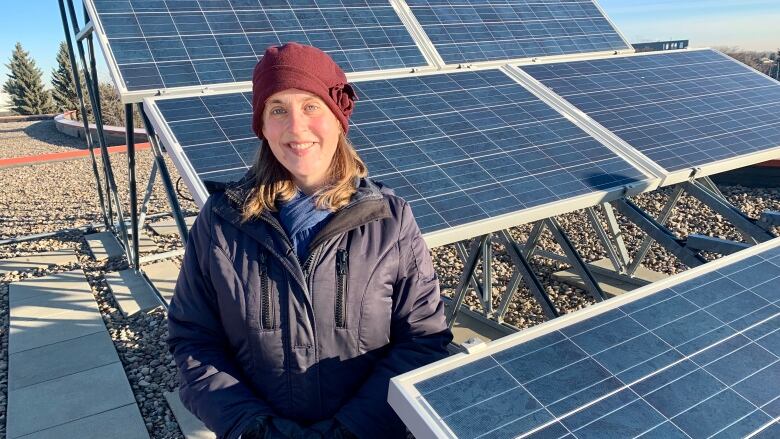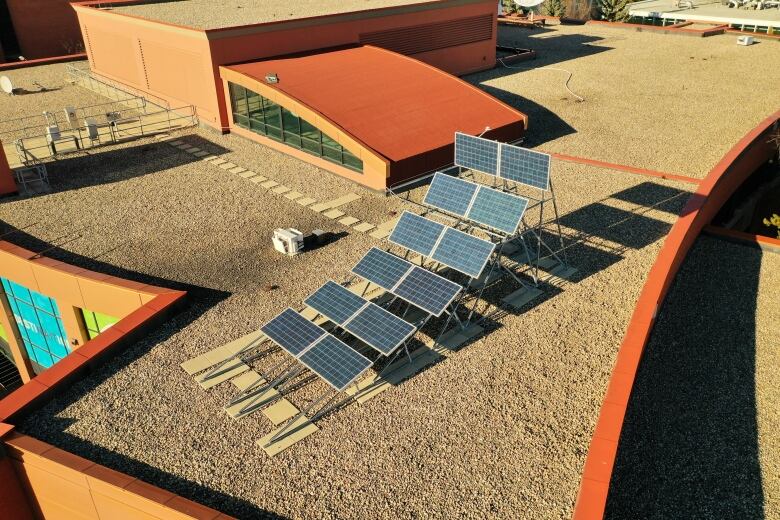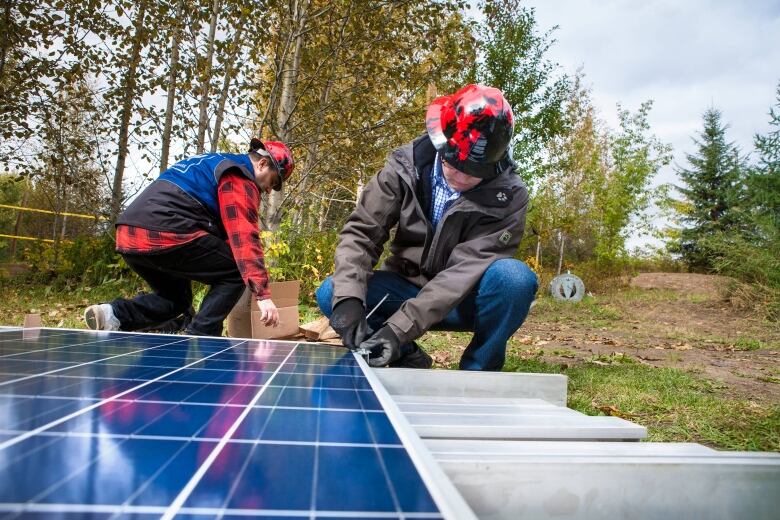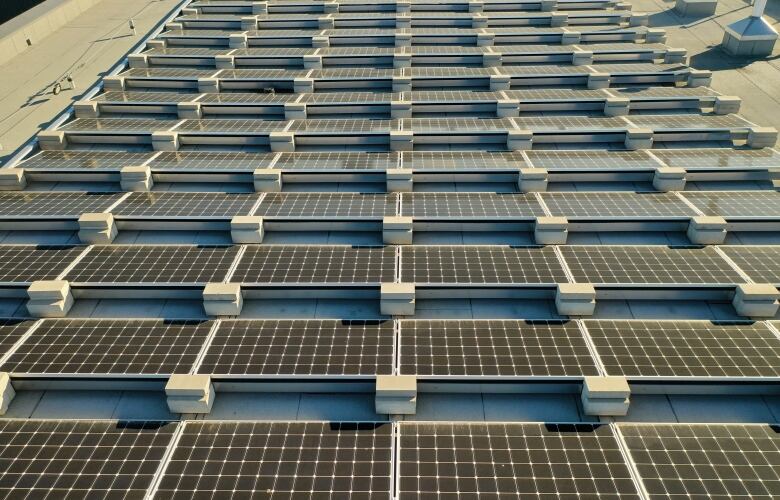Could this be solar power's time to shine in Alberta?
'We're an energy powerhouse and its not just in our oil and gas space'

"At first it was a bit of a slog getting solar going in Alberta," says Heather MacKenzie, executive director of Solar Alberta, but"the growth has been exponential in recent years."
This week, alternative energy sources like solar arefront and centre at the United Nations Climate Change Conferencein Glasgow, Scotland.
You can see more on solar energy in this week's edition of Our Edmonton on Saturday at 10 a.m., Sunday at noon and 11 a.m. Monday on CBC TV and CBC Gem.
The not-for-profit Solar Alberta is turning 30 this month and it'staking stock of that growth, MacKenzie says.
What started as a do-it-yourself solar club has grown to an educational organizationwith 170 business members supporting a wide range of projects from an egg farm on a Hutterite colony, to solar-powered food trucks, public buildings like the Edmonton Convention Centre and community projects like an Indigenous-owned solar farm in Fort Chipewyan.
- Indigenous-owned solar farm opens in remote northern Alberta community
- How Canada's largest solar farm is changing Alberta's landscape
In a province dominated by oil and gas, solar makes up only between two and three per cent of the electrical grid,MacKenziesays.But, she adds, "we're really in a very large growth phase of solar in Alberta right now."
She says solar contributed 170 MW to the grid in 2020 and by the end of 2023 that number will havejumped to 4,600 MW.

It's really the old story of supply and demand driving larger-scale manufacturing, resulting ina 90 per cent drop in the price of panels in the last decade, says JimSandercock,chair of theAlternative Energy Technologyprogram at the Northern Alberta Institute of Technology.
"We're an energy powerhouse and it's not just in our oil and gas space, it's also in our renewable space,"Sandercock says.
Interest in solar energy has translated into enrolment, he says.
While many of thestudents are coming straight out of high school,others are retraining from the oil and gas sector.
Since launching the program in 2011 NAIT has doubled the number of seats from 24 to 48 a year.
Sandercock says Alberta is well positionedwith a "stable of engineers andoftrades people," to make the transition to renewable energy sources.
- Albertans are hot for solar right now, even with the pandemic pinch
- As UN climate conference begins, Alberta has much on the line

Robert Hornung, president and CEO of Canadian Renewable Energy Association, believes Alberta is very much the "focal point" for the solar industry in Canada.
While the vast majority of projects are in Ontario,"the area where the most activity is happening today is Alberta and by a significant margin," he says.
Dropping panel prices and consumer demand arepart of the reason, but so are Alberta's abundant sunshine, its unique electrical market structure and thecarbon pricing frameworkthat allowsemittersto meet their carbon reduction obligationsby supportingsolar energy projects,Hornungsays.
Hornung believes the climate change targets set out by Canada at gatherings like COP26"only opens the door to significantly more deployment of solar going forward."














_(720p).jpg)


 OFFICIAL HD MUSIC VIDEO.jpg)
.jpg)



























































































